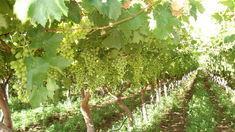
Leading grape exporter Capespan has revealed that its diminutive organic grape production is increasing in size and demand.
The method currently only constitutes around five per cent of the company’s business, but there are signs that UK consumers are finding a taste for the product.
After just six years in production, South Africa accounts for a significant proportion of the organic grape market, with India and Argentina also offering supplies.
South Africa holds three production regions, with seven large growers. The heat of the Orange River valley region proffers the largest amount of fruit - most of which is Thompson white seedless and Flame.
The production costs of farming organic grapes are thought to be around 30 per cent more than conventional growing, while South African product is worth around €2.5 million (£2.3m). Organic production constitutes around 1.9 per cent of the country’s grape market at the moment.
More than 1m cartons a year are now exported, primarily meeting the market just before Christmas through to mid-February, with half sent to the UK and the other half to the continent. The grapes are harvested around week 47.
Erik Stroebel, Capespan product manager for grapes, told freshinfo: “Increasingly we are seeing new receivers asking for organic grapes, especially in the UK market, which is very pleasing as when we began production no one knew what the demand would be and at one point we had to do some airfreighting to meet demand.
“It is still a growing market despite the economic downturn and all the talk around organics [declining]. We are aided by strong standards too - organisations such as the Soil Association make sure our product is 100 per cent organic.
“The main problems that growers face are very traditional ones - supply and demand, detritus and preservation issues,” Stroebel concluded.



